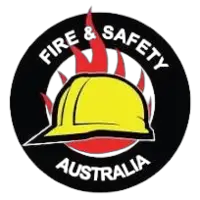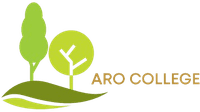
This role has a moderate level of AI exposure. AI can enhance efficiency for some tasks, but this job still relies on human skills and decision-making.
Explore all careersA Spotter Catcher locates and relocates wildlife before land clearing, using traps and tracking methods while working outdoors in various conditions.
Get qualified to work as a Spotter Catcher with a course recognised across Australia. Speak to a training provider to learn more.




In Australia, a full time Spotter Catcher generally earns $1,050 per week ($54,600 annual salary) before tax. This is a median figure for full-time employees and should be considered a guide only. As you gain more experience you can expect a potentially higher salary than people who are new to the industry.
 Courses.com.au Team
Courses.com.au Team
The number of people working in this field has dropped slightly over the last five years. There are currently 4,200 people employed in this industry and many of them specialise as a Spotter Catcher. Spotter Catchers may find work across all regions of Australia.
Source: Australian Government Labour Market Insights
 Courses.com.au Team
Courses.com.au Team
If you’re interested in working as a Spotter Catcher, consider enrolling in a Certificate III in Conservation and Land Management. You’ll learn more about biodiversity and restoration work and gain practical skills in this field. You could also consider a Certificate III in Marine Habitat Conservation and Restoration.
 Courses.com.au Team
Courses.com.au Team
Browse occupations related to Spotter Catcher



Are you interested in pursuing a career that combines your love for the environment with practical skills? Enrol in some of the top Spotter Catcher courses in Wollongong to gain essential knowledge and hands-on experience. With courses like the Certificate III in Conservation and Ecosystem Management (Ecological Restoration) AHC31424 and the Conduct Hazard Analysis MSMWHS201, you'll be equipped with the skills necessary to work effectively in conservation and land management roles throughout the stunning Wollongong region.
Completing a Spotter Catcher course opens up exciting career opportunities in various fields linked to environmental and sustainability studies. Positions like Conservation Manager, Park Ranger, and Ecologist are just a few options available for graduates. In Wollongong, surrounded by rich ecosystems, your contributions can significantly impact local conservation efforts and initiatives.
The Spotter Catcher field is deeply connected to a variety of relevant studies. To supplement your education, consider exploring Environment and Sustainability courses or narrow your focus further with Marine Conservation. These categories represent pathways to enhance your qualifications and expertise, ensuring you stand out in the competitive job market.
As you investigate the Spotter Catcher courses in Wollongong, remember that they cater to learners at all levels, including those with no prior experience. The beginner courses, such as the ones mentioned above, prepare you for foundational roles that can lead to advanced positions like Marine Biologist or Conservation Officer. Each role is vital in fostering sustainable practices in the local environment.
The vibrant community of Wollongong is perfect for aspiring Spotter Catchers, with its unique landscapes and biodiversity. By participating in these courses, you become part of a movement that prioritises ecological health. With a solid training background, you will be prepared for a rewarding career in conservation, whether that means becoming a Indigenous Land Worker or a Soil Scientist. The future of our environment depends on dedicated individuals like you who are eager to learn and make a difference.